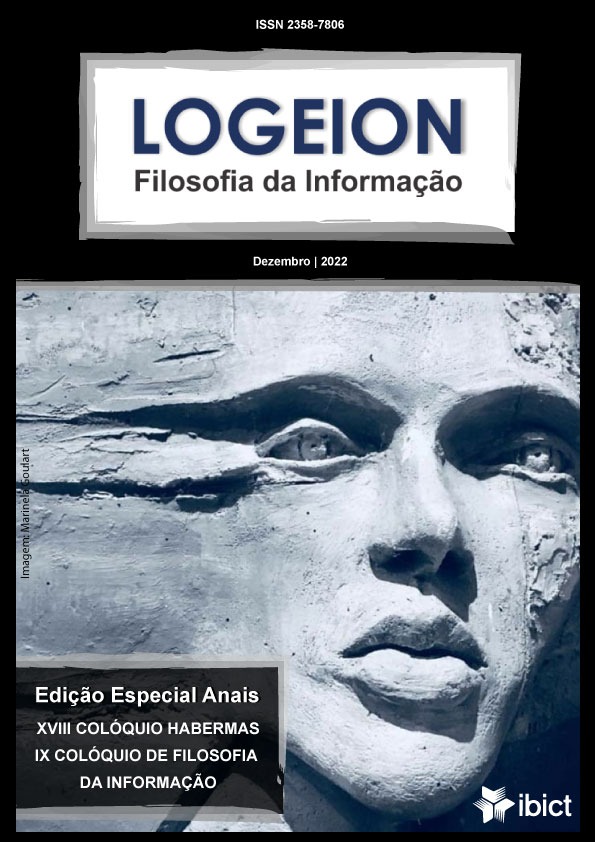Ética a nicomano
Nicomean ethics : procedural conduct matters
DOI:
https://doi.org/10.21728/logeion.2022v9nesp.p46-59Keywords:
Ethics. Judge. Procedural conduct.Abstract
One will speak to Nicomano as to a novice judge. In ancient times, Nicomachus was properly instructed in matters of conduct. Some matters of procedural conduct are presented to the novice judge, whose lessons are analyzed by juridical rules so that the judge does not distance himself from the sense of justice, which he aspires to so much, and does not confuse procedural objectivity with intrinsic subjectivity, which at the same time superb error of injustice can lead him to subvert the Law due to political passions. With Levitsky and Ziblatt, the topic about the co-option of the judge is introduced and, with Habermas, procedural ethics is presented, observing the process as a kind of legal community. Dworkin adds something more about the interpretive conduct of law. In matters of personal conduct, Aristotle warns that every action and every choice aims at some good. Therefore, in personal conduct, it is not surprising that the subjectivity of the agent prevails in the examination between means and ends. However, in terms of procedural conduct, the judge acts in accordance with normatively considered legal interests. In short, in terms of procedural conduct, the objectivity of the facts prevails, aiming at the impartial application of legal rules, in accordance with the principles of the dignity of the human person, in their inviolability, in the presumption of innocence, in full defense, in the contradictory and in a impartial judgment. The final considerations, anchored in direct observations, in the Brazilian context and in the referenced literature, allow us to conclude that the democratic legal order depends, among other factors, on the judge's ethical conduct.
Downloads
References
ARISTÓTELES. A ética. Tradução Cassio M. Fonseca. Rio de Janeiro: Edições de Ouro. 1968.
BRASIL. Congresso Nacional. Senado Federal. CORDEIRO, Túlio; MARQUES Beatriz (Org.). Código de Processo Civil e normas correlatas. 7. ed., Brasília: Senado Federal, Coordenação de Edições Técnica, 2013.
DWORKIN, Ronald. O império do direito. Tradução Jeferson Luiz Camargo. Revisão técnica Gildo Sá Leitão Rios. 3. ed. São Paulo: Martins Fontes, 2014.
FARIAS, José Fernando de Castro. Ética, política e direito. Rio de Janeiro: Lumen Iuris, 2004.
FOUCAULT, Michel. Vigiar e punir: nascimento da prisão. Tradução de Raquel Ramalhete. Petrópolis, Vozes, 1987.
HABERMAS, Jürgen. Técnica e ciência como “ideologia”. Tradução de Felipe Gonçalves da Silva. São Paulo: Edunesp. 2014.
LEVITSKY, Steven; ZIBLATT, Daniel. Como as democracias morrem. Tradução Renato Aguiar. Rio de Janeiro: Zahar, 2018.
LUHMANN, Niklas. Introdução à teoria dos sistemas. Tradução de Ana Cristina Arantes Nasser. Rio de Janeiro: Vozes, 2009.
STRECK, Lenio Luiz. Dicionário de hermenêutica: quarenta temas fundamentais da teoria do direito à luz da crítica hermenêutica do Direito. Belo Horizonte: Letramento Casa do Direito. 2017.
Downloads
Published
Issue
Section
License
Copyright (c) 2023 Logeion: Filosofia da Informação

This work is licensed under a Creative Commons Attribution-NonCommercial-ShareAlike 4.0 International License.
The journal is published under the Creative Commons - Attribution - Noncommercial - Share Alike 3.0 Brazil.
The published work is considered collaboration and therefore the author will not receive any remuneration for this as well as anything will be charged in exchange for publication.
All texts are responsibility of the authors.
It’s allowed partial or total reproduction of the texts of the magazine since the source is cited.














